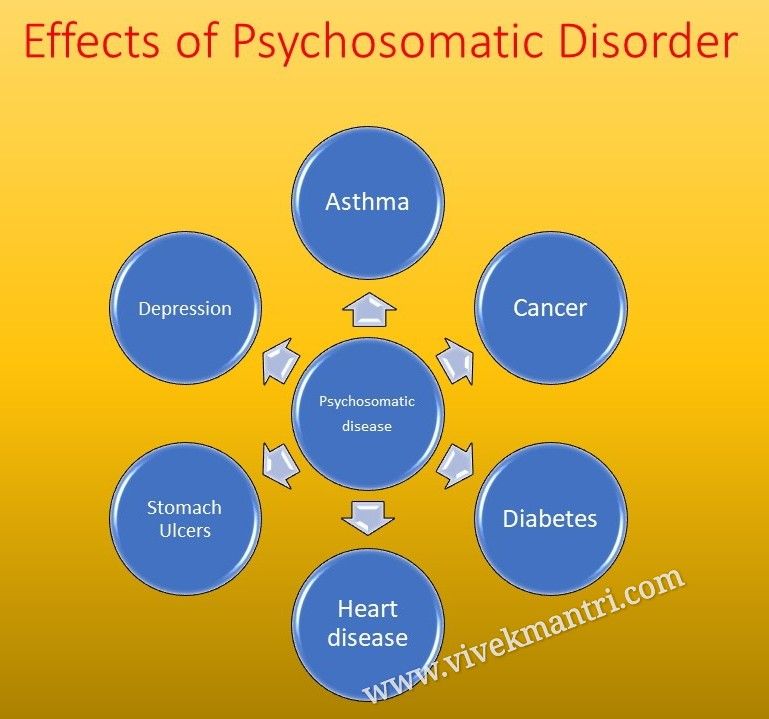Psychosomatic Disorder
Jul 06, 2019 • 303 views
A good health is the amalgamation of physical, mental and social well being. Mere absence of any disease doesn’t imply good health. The word psychosomatic means mind (psyche) and body (soma). A psychosomatic disorder is a disease which involves both mind and body.It is told that the basic concept in psychosomatic medicine was described by Sigmond Freud, who used the term “conversion hysteria,” which means nothing but change in expressive behaviour, i.e. from an unresolved emotion to somatic symptom. Body and mind always work as a single unit and that is why every physical disease has some corresponding mental component and vice versa.

How can mind affect physical diseases?
Suppose when we are afraid of something we tend to develop conditions such as- fast breathing, fast heart rate, sweating, headaches, nausea, palpitations, chest pain and dry mouth.

Psychosomatic disorders are often known to affect the respiratory and gastrointestinal systems as well as the cardiovascular system leading to mild or severe effects on one’s quality of life by interfering with the normal functioning of everyday life and resulting in physical and mental disabilities.
Two hypotheses have been explained to describe the relationship between psyche and soma-- First one is Specific hypothesis and the other one is nonspecific hypothesis.
Specific hypothesis suggests that expression of a predetermined disease occurs due to a specific stimulus or conflicts or stressors.
Nonspecific hypothesis states that generalized stress create preconditions for a number of predetermined diseases. According to this hypothesis, four varieties of reactions occur due to stress which are healthy normal, neurotic, psychotic and psychosomatic.
Psychosomatic illness is divided into three general categories.
In the first category, a person has both mental and physical illness. The second category involves a person who experiences mental issues due to certain medical conditions and treatments related to them. The third category is known as somatoform disorder, a condition in which a person with mental illness experiences one or more physical symptoms.
RISK FACTORS RELATED TO PSYCHOSOMATIC DISORDER
Type-2 diabetic patients are generally more susceptible to stress-related hypertension. The same stress factors of hypertension aggravate the diabetic condition.
Psychological stress can also affect a tumor’s ability to grow and spread leading to worse conditions of cancer.
TREATMENT-
Cognitive Behaviour Therapyor CBT is a common treatment of choice for a psychosomatic disorder. This therapy helps patients to get acquainted with new ways to cope up and solve their problems. Patients also learn to set realistic goals for their lives and bring alter behaviours and thoughts which can have negative effects on their lives.
